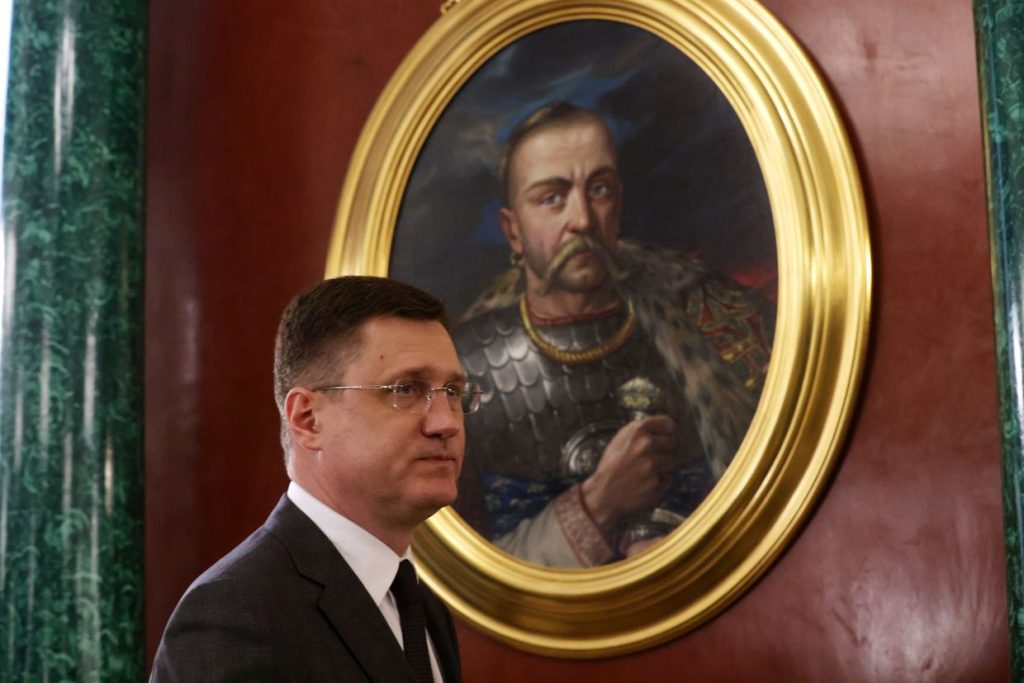Reviving Economic Commission Amid Sanctions and Inflation
Russia has reactivated a special economic commission that was originally established during the Covid-19 pandemic to address the challenges faced by struggling industries, according to a report by The Moscow Times on February 11. Citing Russian Deputy Prime Minister Alexander Novak, the news underscores the growing concerns in the Kremlin about the state of the country’s economy, which has been heavily impacted by Western sanctions and soaring inflation driven by record wartime spending. The commission, which resumed operations in December 2024, is now focusing on nine key sectors and over 2,000 enterprises. One of the primary risks identified by Novak is a "decline in investment activity," a phenomenon exacerbated by the sanctions and the resulting economic isolation. This reactivation signals Russia’s proactive approach to mitigating the economic fallout and supporting its vital industries.
Struggling Industries: Coal, Metallurgy, and Timber
Several industries, including coal, metallurgy, and timber, are experiencing significant downturns due to the sanctions and the subsequent reduction in exports. Coal companies, for instance, have suffered an 80 billion ruble ($845 million) loss from plummeting exports, leading to the closure of mines and raising fears of widespread bankruptcies. The government is already formulating support measures to address these challenges. Russian metallurgical plants, struggling with reduced access to foreign markets, are also expected to receive state assistance. The timber industry, which has seen exports drop by a third, is another sector in line for government intervention. These measures reflect the government’s commitment to stabilizing these critical sectors, which are essential for Russia’s economic resilience and growth.
Challenges in the Agricultural Sector
The agricultural sector in Russia is also facing substantial distress, primarily due to drought and poor harvests. In 2024, wheat production declined by 16%, while yields for crops such as corn, barley, and sugar beet dropped by nearly 20%. These reductions have significant implications for both domestic food security and international trade. The adverse weather conditions have not only affected crop production but also increased costs for farmers, further exacerbating the economic strain. Russian President Vladimir Putin has acknowledged the gravity of the situation and has directed the government to implement measures to stabilize prices and support the agricultural community in 2025.
Inflation and Economic Stabilization
Inflation remains a significant challenge for Russia, with consumer prices rising 9.5% in 2024 and climbing further to 9.9% year over year. President Putin recently highlighted this issue, emphasizing the need for the government to take action in 2025. The Russian Central Bank, which has maintained an interest rate of 21%, has observed "no signs of a sustainable slowdown in price growth." The bank attributes this to ongoing sanctions, currency depreciation, and high defense spending. The Central Bank predicts that inflation will drop to between 5.2% and 8.6% by the end of 2025. A critical policy meeting is scheduled for February 14, where further economic stabilization measures will be discussed. These steps are crucial to mitigate the impacts of inflation and restore economic stability.
Strengthening Defense Ties with India
Amid deepening economic and strategic ties between Moscow and New Delhi, Russia has offered to manufacture its fifth-generation Su-57 stealth fighter jet for the Indian Air Force, as reported by Reuters on February 11. This offer comes from two government officials and underscores the strategic importance of Russia-India relations. The Su-57, known for its advanced stealth capabilities and cutting-edge technology, is a significant asset for any air force. This collaboration could bolster India’s defense capabilities and strengthen its strategic position in the region. It also highlights Russia’s efforts to diversify its defense exports and forge closer alliances in the face of Western sanctions and economic pressures.
Denmark’s Intelligence Warning: Potential for Large-Scale War
The Danish Defense Intelligence Service (DDIS) has issued a stark warning in an unclassified intelligence assessment, suggesting that Russia could find the opportunity to launch a large-scale war on Europe within the next five years. According to the report, such a scenario could unfold if Moscow perceives NATO as either militarily weakened or politically divided. This assessment highlights the ongoing geopolitical tensions and the potential risks associated with Russia’s aggressive posturing and military capabilities. The warning serves as a call to action for European nations and NATO to strengthen their defenses and maintain political unity. It also underscores the delicate balance of power in the region and the need for vigilance and preparedness in the face of potential threats.












